Expecting the Barbarians refers to an incident in early Roman history when the barbarians did arrive. The irony is that, in the poem, they do not arrive. The idea being that the ”barbarian” is interior to the individual, representing the shadowy corners of ourselves. This poem has become well known in English speaking countries, and one can well understand why. Despite its setting, it speaks as much to the present as to the past. Expecting the Barbarians:
What are we waiting for, assembled in the public square?
The barbarians are to arrive today.
Why such inaction in the Senate?
Why do the Senators sit and pass no laws?
Because the barbarians are to arrive today.
What further laws can the Senators pass?
When the barbarians come they will make the laws.
Why did our emperor wake up so early,
And sits at the principal gate of the city,
on the throne, in state, wearing his crown?
Because the barbarians are to arrive today,
And the emperor waits to receive their chief,
Indeed he has prepared to give him a scroll.
Therein he engraved many titles and names of honour. ( Cavafy )
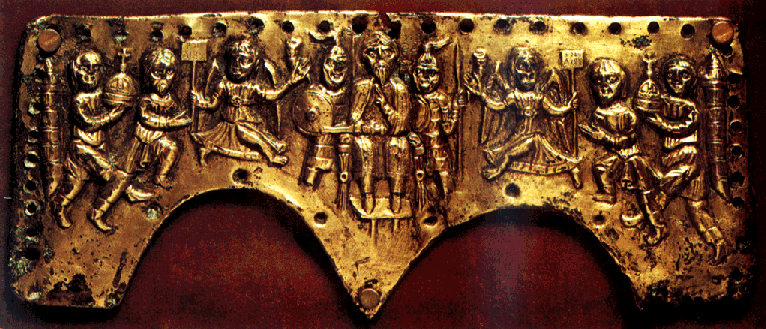
With a primitive artistry completely alien to the classical style this copper plaque depicts King Agilulf, rule of the Lombards from 592-615. Bagello Museum. Florence
The emergence of medieval civilization from that of the Romans is far too complex a subject to be dealt with briefly. Ultimately, of course, the entire quality of life changed. But in the period of the last barbarian invasions and immediately afterward such medieval phenomena as chivalry, Scholasticism, and Gothic cathedrals still lay far in the future. Despite the political upheavals, many aspects of life remained unchanged, especially in the southern part of western Europe.
Christians were inclined to interpret the chaos of the times as a sign that the last days were coming. Thus Saint Ambrose could write, ”we are indeed in the this world” Nevertheless, the emperor in Constantinople was still the emperor. The popes acknowledged their subservience to him even though they were becoming virtually independent. The chanceries of barbarian kings continued to date documents by the reigns of the emperors in Constantinople. Throughout western Europe the literate continued to write in Latin, and the common people, including the barbarians, spoke dialects of Latin for the most part; a patois or slang version. Only in England was there a violent rupture with tradition, and only there did a barbarian vernacular take the place of Latin.
slide" onclick="return vz.expand(this)" href="http://www.aug.edu/augusta/iconography/webmuseum/innocentsDuccio.jpg">
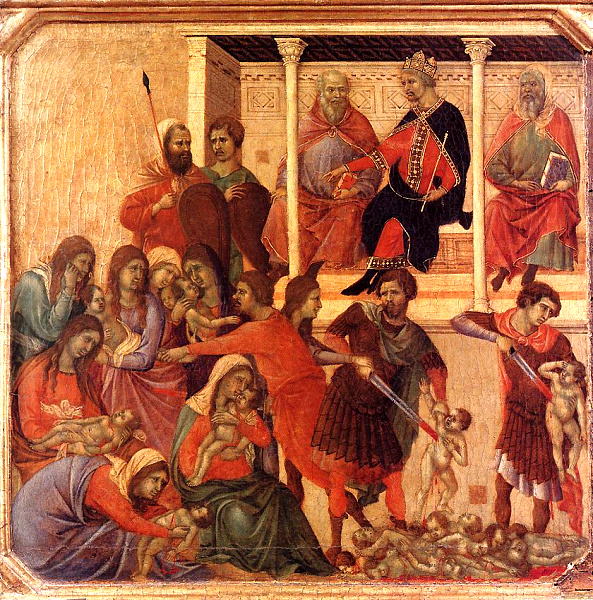
Duccio. Innocents


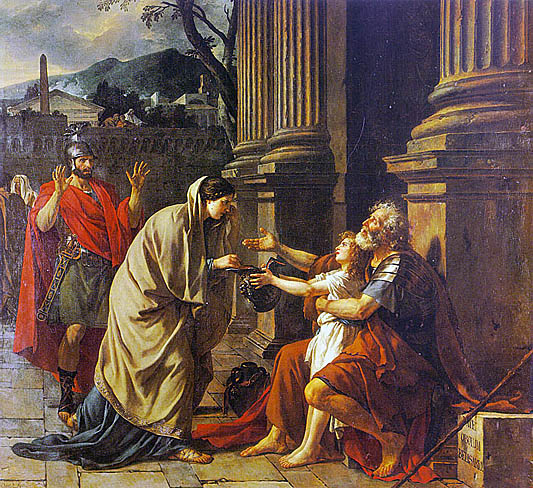
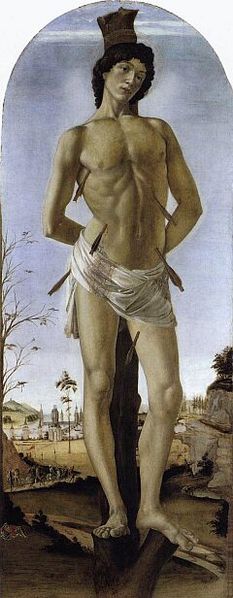
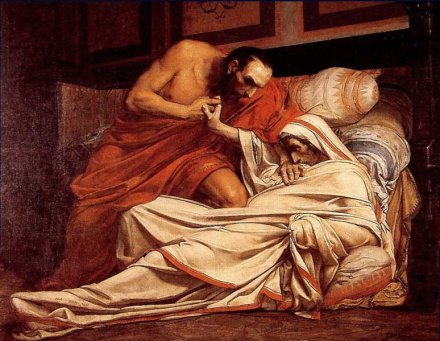
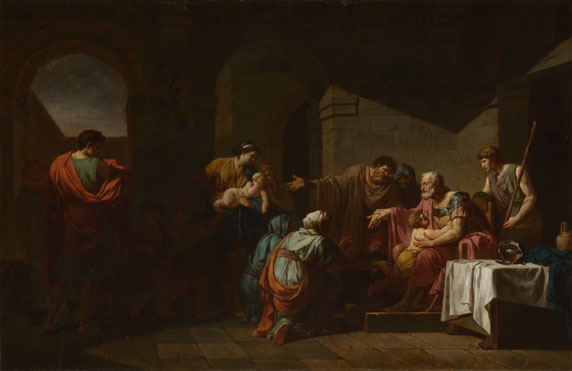
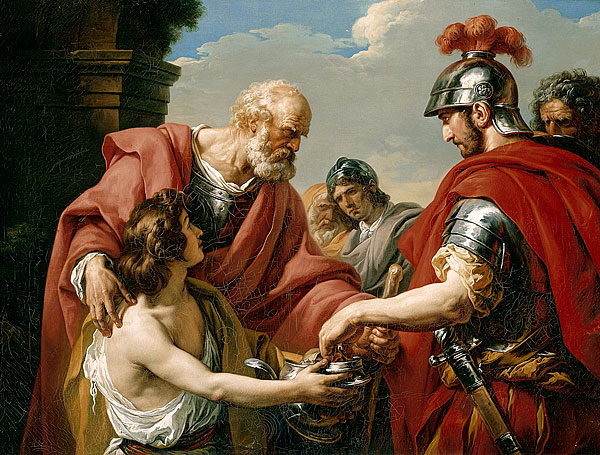





 COMMENTS
COMMENTS


